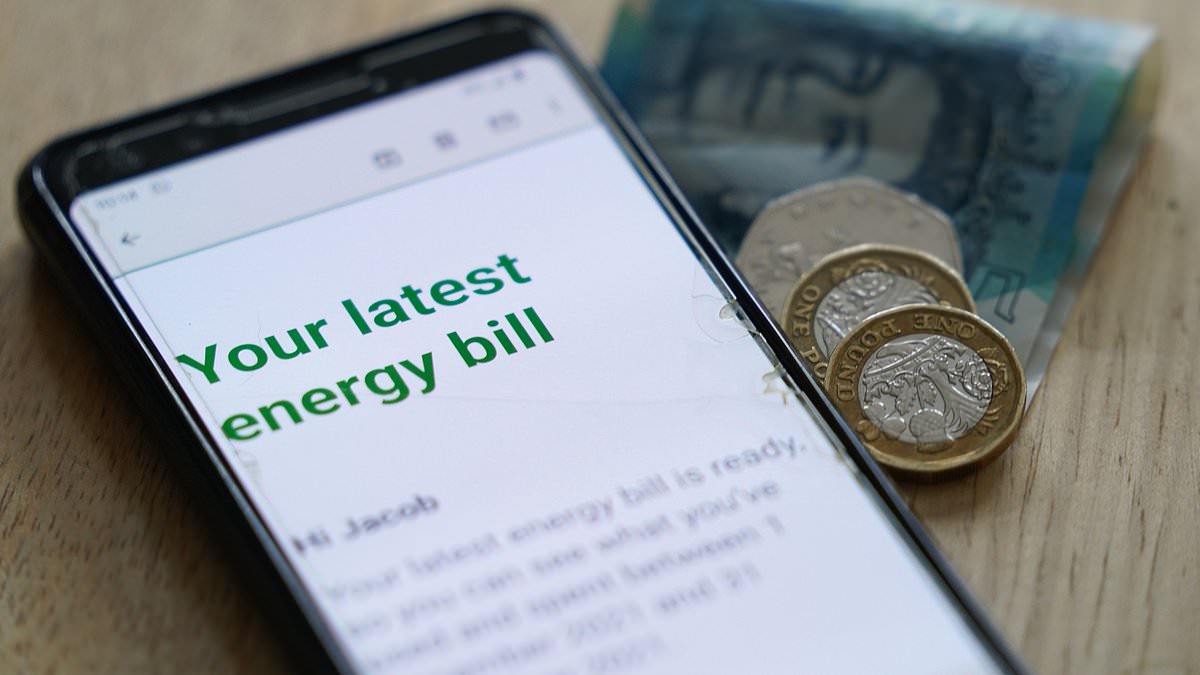Energy regulator Ofgem has announced energy bills will fall by around 7 per cent from July in its latest price cap adjustment today.
The typical bill will fall by £129 to £1,720 per year when the regulator’s new price cap comes into force.
The cap is currently set at around £1,849 for a typical household after three consecutive increases in bills.
The drop in rates comes after US President Donald Trump’s aggressive tariff plans led to a significant slump in gas and oil prices.
The predicted drop is slightly less than the previously forecast 9 per cent fall following an easing of trade tensions in recent weeks.
Cornwall Insight said it expects the reduced price cap to be followed by a ‘modest drop’ in October and another similar dip in January next year.
News of a fall in energy costs will come as a relief for households, who suffered through an ‘awful April’ of bill rises including Ofgem’s last 6.4 per cent price cap increase.
Under-pressure households have also been hit with the biggest increase to water bills since February 1988, alongside steep increases across bills for council tax, mobile and broadband tariffs, and road tax.
Bill rises have led to Consumer Prices Index (CPI) inflation jumping to 3.5 per cent in April, up from 2.6 per cent in March and the highest since January 2024.
Energy expert Craig Lowrey said: ‘The fall in the price cap is a welcome development and will bring much-needed breathing space for households after a prolonged period of high energy costs.
‘It’s a step in the right direction, but it should be taken in context.
‘Prices are falling, but not by enough for the numerous households struggling under the weight of a cost-of-living crisis, and bills remain well above the levels seen at the start of the decade.
‘As such, there remains a risk that energy will remain unaffordable for many.’
Ofgem changes the price cap for households every three months, largely based on the cost of energy on wholesale markets.
The energy price cap was introduced by the Government in January 2019 and sets a maximum price that energy suppliers can charge consumers in England, Scotland and Wales for each kilowatt hour (kWh) of energy they use.
It does not limit total bills, because householders still pay for the amount of energy they consume.
Money saving expert Martin Lewis on Wednesday warned Brits they should ‘fix energy bills today’ in preparation of ‘global economic changes’ to come.
Despite energy prices falling, Martin revealed the cheapest fixed rate is 18 percent below the current energy price.
He warned that people across the UK should secure their energy rates now by switching to a more favourable deal and fixing their rate for the year rather than signing up for a variable rate.
He said: ‘You might want to sit on the variable but you can save 18 percent instantly by going to a comparison site, your usage and region will depend how much it is, so make sure you are finding the right one for you.
‘If these predictions are right, fixing right now will save you massively compared to what is predicted to come, there could be some global economic change which would mean things could change massively.’
He claimed that people tend to wait until prices comes down to fix but explained fixes are based on future predicted prices.
He added: ‘If you fix right now you will be saving 18 percent tody and you will very likely be undercutting whatever the price cap will be for the next year. Short answer, fix.’
